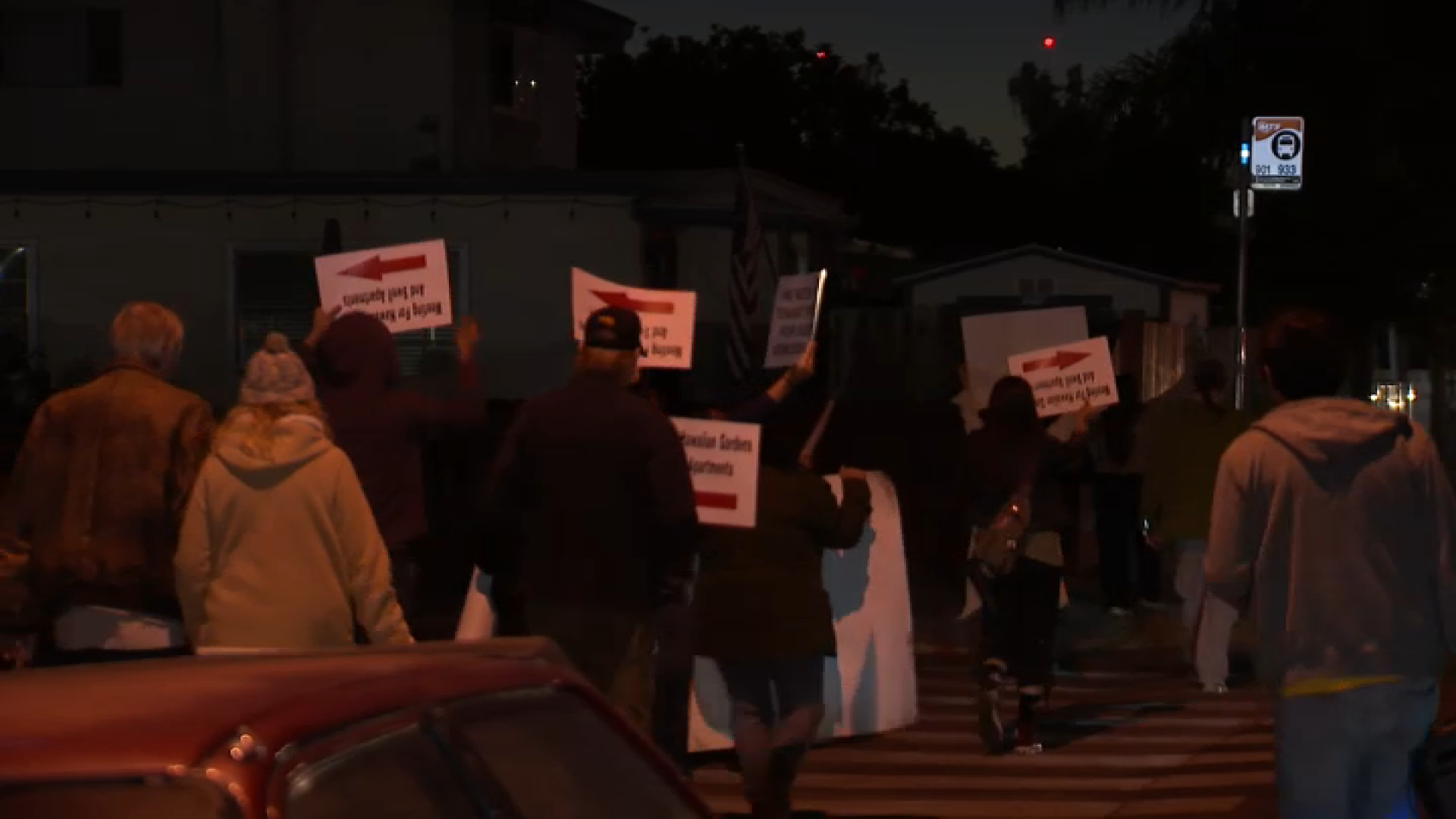A citywide crackdown on short-term vacation rentals through the online AirBnB brokerage is sending chills through thousands of San Diego homeowners.
Some face potential fines, taxes and late charges that could run into six figures.
The city has yet to target the "Uber" ride-sharing service, as other municipalities have done.
But it's going after landlords -- so-called "hosts" – who lack permits for "commercial bread & breakfast" operations.
In some cases, those sent notices of violations are protesting that the applicable municipal codes and regulations are based on inconsistent rationales, and being harshly enforced.
One such complainant is a 70-year retired schoolteacher who owns a modernized 1912 Craftsman home in Burlingame, east of Balboa Park.
"The beauty of AirBnB is, unlike Bed & Breakfasts and hotels, that you can screen your guests -- they're reviewed by prior AirBnB hosts," Rachel Smith told NBC 7 in an interview Tuesday. "And it's a wonderful way to share the house and my neighborhood."
But neighbors didn't appreciate the hospitality Smith offered travelers – and reported her to City Hall.
Local
“One day, one of the neighbors came over very frantic,” Smith recalls, “saying she just couldn’t take it anymore -- and would not tell me what had happened, no incidents that she was willing to share.”
Smith had been renting upstairs bedrooms for not quite two years, an estimated 40 times for $80 a night, until she heard from code compliance officers last November.
After letting them in to inspect, she wound up being cited for numerous zoning violations that carry potential penalties of $2,500 a day plus back taxes and other levies.
"Now my gut is in a knot and I'm wondering what this aggressive behavior is about," Smith said.
City spokesman Bill Harris tells NBC 7 that Smith was cited under "illegal lodging" codes particular to the neighborhood, not for short-term rental violations.
Her lawyer sees it as heavy-handed enforcement.
"I think when you have the compulsive power of the government, you really need -- as a city -- to be more careful about how you wield that power," attorney Omar Passons said in an interview.
For some 3,000 other AirBnB hosts facing city action, Passons notes that there's a costly consideration when it comes to operating permits for short-term rentals:
"You'll see that those permits are thousands and thousands of dollars -- minimum, five to seven -- that can take up to a year,” he explained. “That would cripple the opportunity for people in a pretty unaffordable city to be able to find a way to supplement (incomes)."
Harris says Smith's appeal case will be weighed by an “neutral” city hearing officer.
"There's something 'Alice-in-Wonderland about it," Smith says. "I figured well, they said I'm doing this, but I'm innocent until some court finds me guilty. I guess that's not the case with a hearing.”
An adverse ruling could be appealed in court.
While Harris points out that officials are working with AirBnB to "educate" hosts, two city councilmembers are looking into resolving the complex issues.
Says Passons, of the approach code compliance inspectors are taking: "It's like 'Oh, let's find what else we can do to create problems, what we can tag on here?’ -- as opposed to saying ‘Let’s get a reasonable solution,' so that a retired schoolteacher isn’t facing a couple hundred thousand dollars in penalties."



